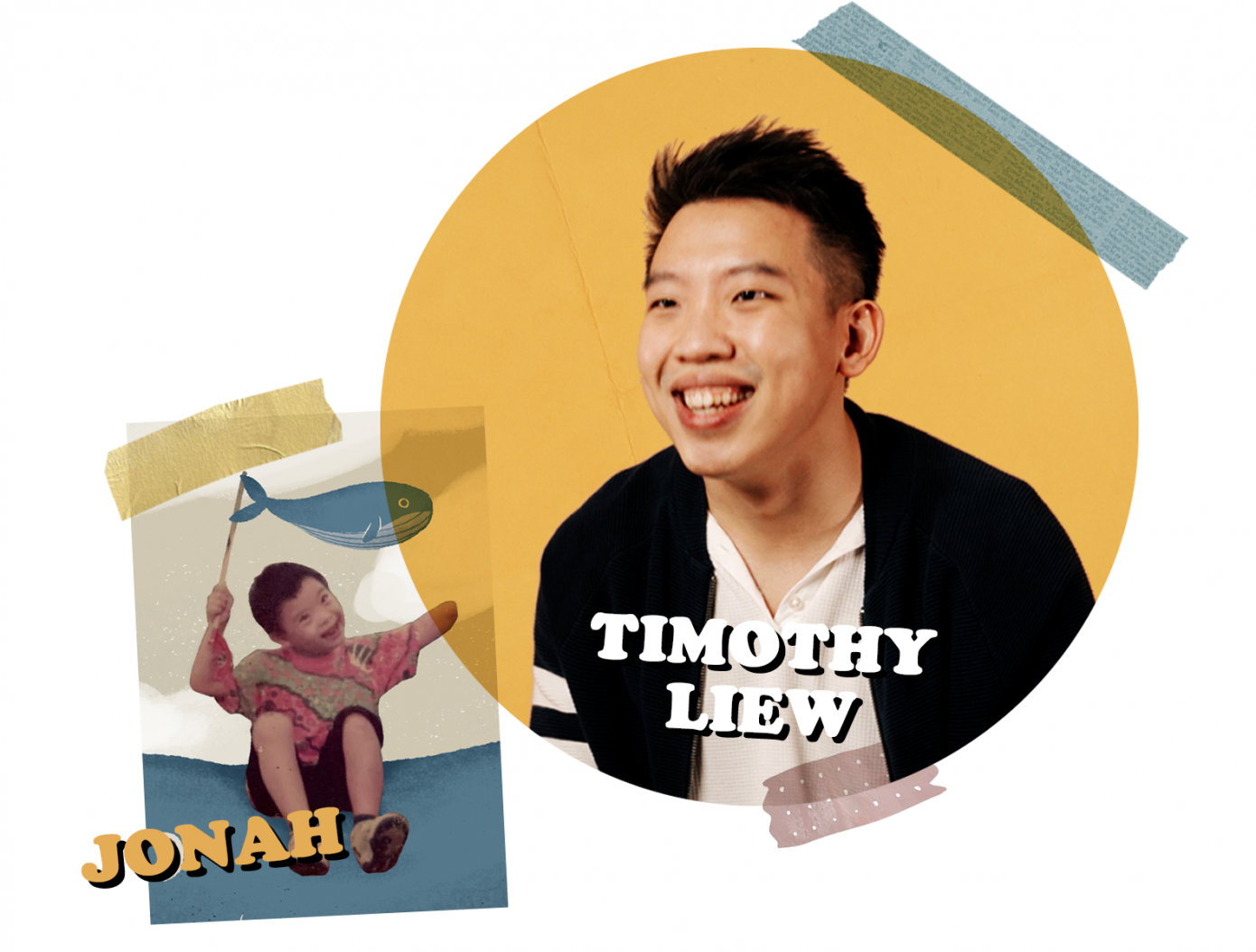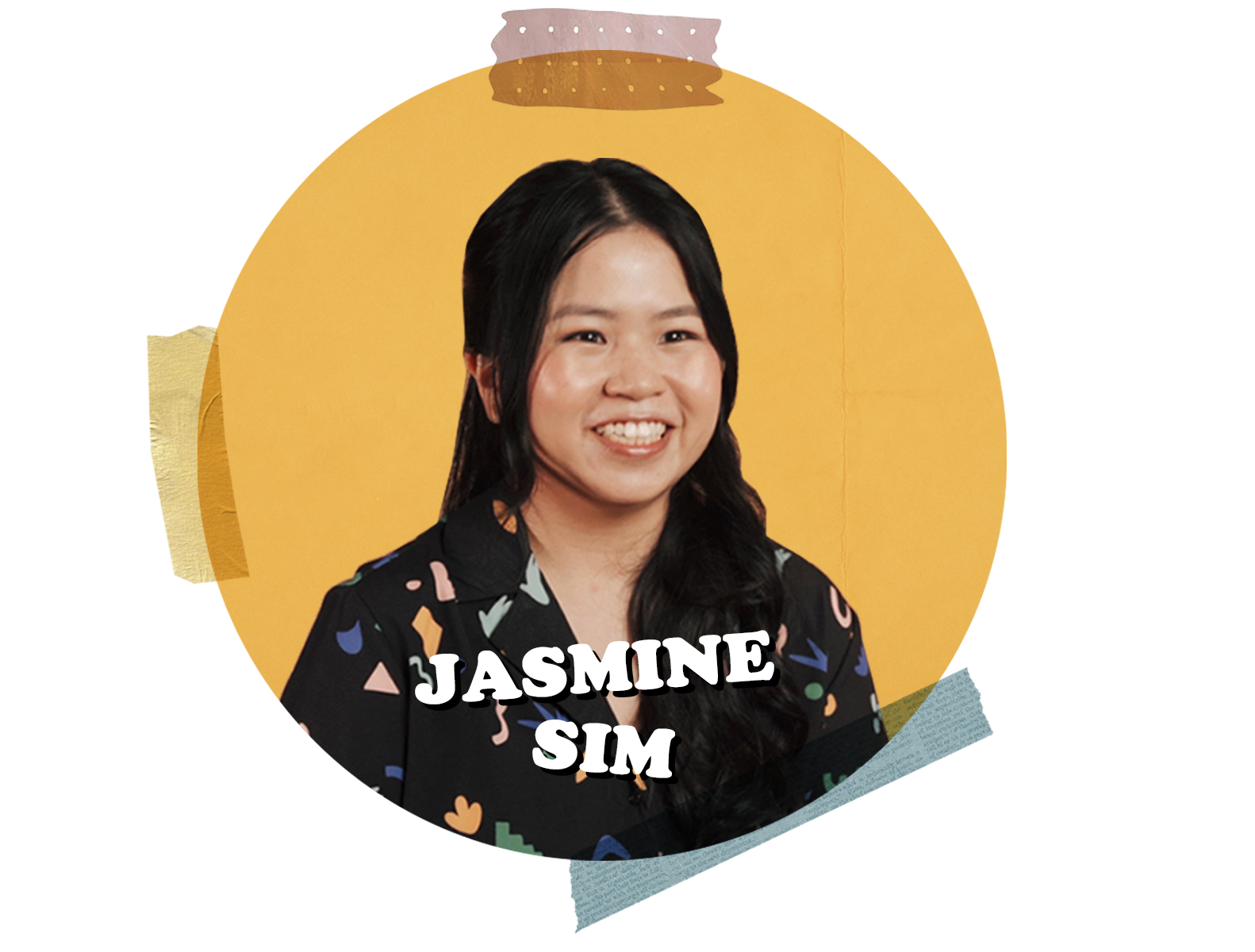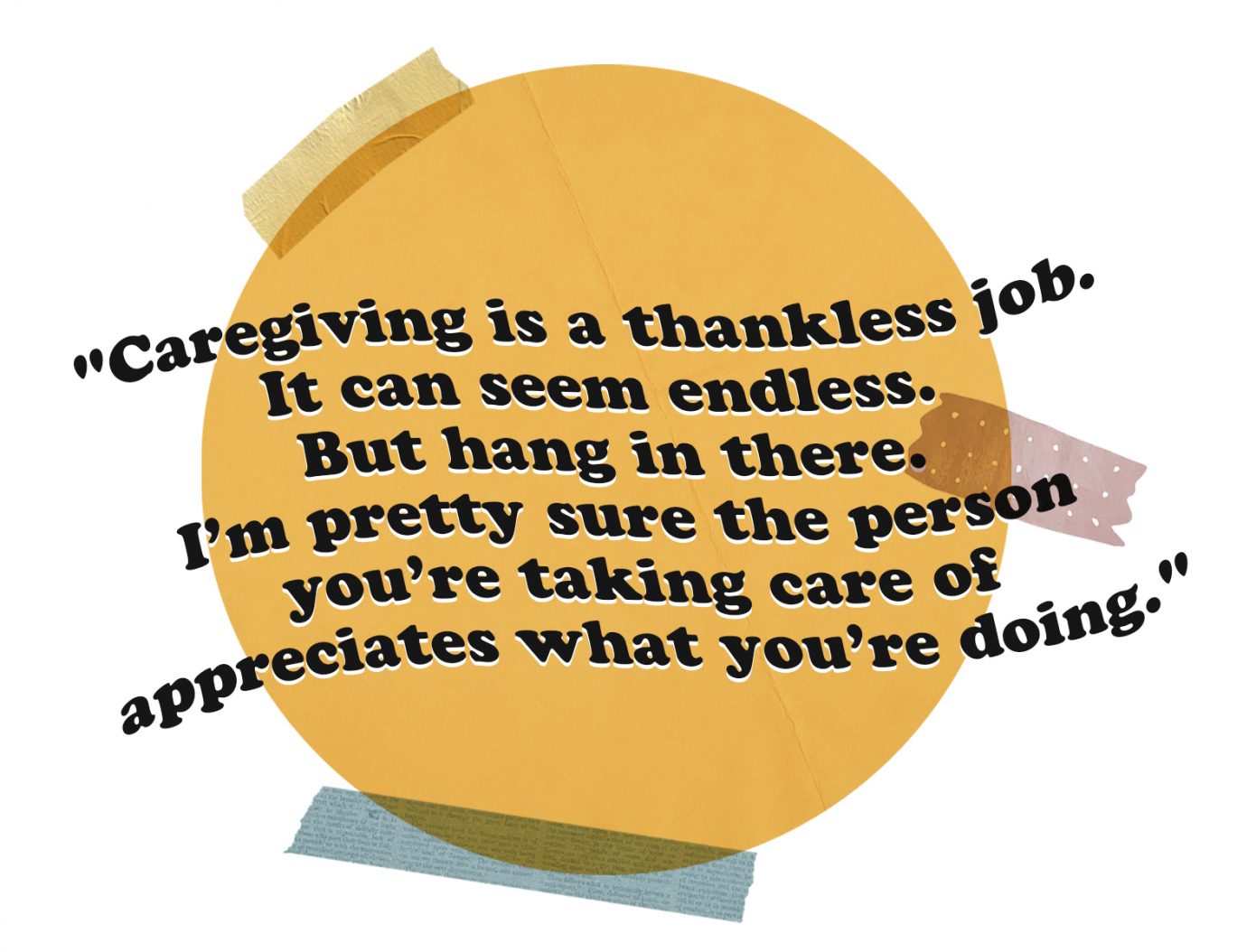“I used to think that caregivers are people of my parents’ age. So I always thought this part of life would come, but not that early.
“That was my own misconception,” said Christina Wong (28), who was only 25 years old when she became the caregiver and sole breadwinner of her family.
Christina’s dad had suffered a stroke after a heart operation in early 2019. The initial diagnosis included partial paralysis, loss of speaking functions, vision and emotional control.
“Even when he was hospitalised, it hadn’t really hit me yet that I was going to be a caregiver,” she revealed. “Until the day the nurses told me and my mum that we needed to learn how to change his diaper.
“That was when it really hit me that this was what I’ve got to do. I’ve got to take care of the family, take over the household matters and take care of my dad.”
It hadn’t really hit me yet that I was going to be a caregiver. Until the nurses told me and my mum that we needed to learn how to change his diaper.
29-year-old Jasmine Sim’s experience was similar. Her dad suffered a severe stroke two years ago.
“Overnight, he wasn’t able to speak, respond or even eat,” said Jasmine. “We had to care for him in the hospital for nine months before he was well enough to come back home for us to continue caring for him.”
Jasmine’s dad remains bedridden to this date. Unable to speak, he has to be tube-fed five times a day.
Christina’s dad has regained some motor skills, although he still requires showering with assistive devices and regular rehabilitation exercises.
Caregiving was a role that Christina and Jasmine unexpectedly took on when life threw them a curveball.

But for Timothy Liew (34), caregiving was a duty he was born into.
“It first occurred to me that I was a caregiver when my parents kept telling me that I had to take care of my brother when I was younger,” he recalled.
“It only became clearer later when I was around 12 years old and my mum had a bad stroke. And that was when all of us had to chip in and take care of him.”
Timothy is caring for his older brother Jonathan (Jonah) who was born with Down Syndrome and only one hand. Before they had help, caregiving for Jonathan revolved around meeting his basic needs.
These days, the family focuses on managing his tantrums and emotional outbursts.
Timothy recounted an incident when their helper had gone into Jonathan’s room to clear some of the trash that he had hoarded.
“When Jonathan found out, he was so mad,” revealed Timothy. “So he took revenge by going into her room, took her stuff and just threw it out the window.”
Unfortunately, Jonathan carried on this behaviour even after his family had locked the helper’s door — he would kick and spit at the locked door late at night.
Timothy and his sister took action by camping outside their helper’s door. Whenever they directed Jonathan to go back to his room, he would listen but scream in anger.
This would happen “several times in the night” over the course of many nights before Jonathan stopped that behaviour — and Timothy and his sister had work and school the next day too.
Timothy admitted: “In my lowest moments when I was very tired and bitter and sleep-deprived, I would just ask myself the question, how long more of this do I have?”
A CAREGIVER’S GUILT
Before her dad’s stroke, Jasmine could meet friends for fun and meals whenever she wanted. But this came to a halt when she became a caregiver.
“Caregiver guilt was very real,” she said. “I felt like I needed to be with my dad physically 24/7. If not, I was a bad daughter.”
Withdrawing herself from social gatherings, Jasmine spent great amounts of time in the hospital with her father. But in the ward, she would also face many “bad thoughts”.
“I don’t know when this caregiving journey will end. I want it to end, but I’m afraid that this would end suddenly when dad goes away…” Jasmine trailed off. “It’s a struggle.”

Christina also expressed a similar dilemma. Initially, she had aspired to continue serving in her various ministries in church even after her dad’s stroke.
But she quickly realised she couldn’t cope with the new commitments at home.
“I struggled a lot with that because I look at my peers who are now doing what I was passionate about and doing the things I wanted to do. I think it felt pretty unfair,” said Christina, who also experiences feelings of guilt and frustration when she cannot meet her dad’s expectations at home.
“It felt like I had my life taken away from me.”
WHEN GOOD INTENTIONS AREN’T ENOUGH
Aside from inner conflicts, caregivers do face challenges from the people around them as well. What makes this even more complex is that they usually stem from good intentions.
“I do get questions from people who know about my situation,” revealed Jasmine. “When they see me, the immediate question would be ‘Hey Jasmine, how is your dad doing?'”
She would then have to give a lengthy update. Jasmine shared that such questions can be asked multiple times within a short amount of time by different people.
“On weeks that my dad isn’t doing so well at home, having to narrate his situation to them can be quite… I would feel quite sian because I have to recall the reality and responsibilities back home,” she said.

Christina agreed that not all well-meaning sentiments are helpful.
“I felt very supported when the people around me really stepped up to just offer whatever they could. But it’s a very grey area because it can sometimes get overwhelming,” she said.
Faced with friends who wanted to visit her dad or offer multiple solutions, Christina felt bad because she didn’t know how to turn down the support.
“It’s not like I don’t want your help,” she explained. “It’s just that the situation is just very complicated and it doesn’t allow for all these ideal solutions that people have kindly come up with.”
Some of these solutions include hiring a helper, sending her dad to a daycare facility or engaging a tingkat (homecooked food delivery) service. While these are good ideas to Christina, there are logistical reasons and finances to be considered.
And more importantly, sometimes the patient himself just doesn’t want it that way, she added.
Unlike Jasmine and Christina who were overwhelmed by people’s efforts to help, Timothy has been disappointed by the lack of empathy from people around him.
To cope, he decided to separate his private and public life: “I had to pack my personal life at home. No one wants to see that in the workplace or in church. People just want to go on and they expect you to function.”
I had to pack my personal life at home. No one wants to see that in the workplace or in church.
“That was the hardest thing for me because I’m putting in all these hours – I’m not sleeping, emotionally I’m not rested,” he bemoaned.
“And yet I have to put on a different skin and go to work and be this person that is driven, that loves his work, that wants to do well. That is gregarious and fun-loving.”
“But actually, in the suitcase, there is a very tired Tim who just wants to chill and be given a break,” said Timothy with weak smile.
“So if I let you know and you respond by telling me ‘Oh, okay thanks, please work harder, deadlines are still the same’, I’d be very disappointed. I just learnt not to tell people that anymore.”
THE LIGHT AT THE END OF YOURSELF
Caregiving can feel like journeying in a tunnel without light at the end in sight. But our three caregivers have found their ray of hope from within.
One of Jasmine’s biggest fears is for her dad to pass on alone, without family by his side. This fear fuelled her incessant desire to be with her dad 24/7 and filled her with guilt when she was unable to do so.
“Setting up this routine for myself to be with my dad as much as possible is like a self-made peace. But that didn’t really last long,” she confessed.
“I had to learn how to surrender to the fact that I can’t actually be 24/7 physically there with my dad, and the only person who can do that is God.”
Describing the caregiving process as a journey to learn how to trust God, Jasmine concluded: “He’s the one who can give me true peace.”

For Christina, seeing God’s hands over the situation means accepting and appreciating the season that she is in.
“I realised that there comes a point in everyone’s life where the roles will be reversed where the child will have to take care of her parents,” she reflected. “I guess it came earlier for me.
“It was a moment of reckoning, realising that I shouldn’t take my parents for granted anymore because they’ve grown old and their bodies are slowly failing them. So it’s also a time for me to step up to take over.”
Christina also acknowledged that while this was not how she envisioned her life in her 20s to be, she now sees caregiving for her parents as the “ministry” God has placed her in to serve Him as well as her parents.
Timothy has also met with good bosses that understood his situation and allowed him to work flexibly. For instance, he is allowed to attend to his brother if an emergency arises.
“I don’t have to come to work thinking I have to choose this or that,” said Timothy. “I know that I can still take care of my brother, go home and deal with it, and I can still focus on my job, which is very important to me as well.”
“I know in society, we are coded to not expect a free pass no matter what circumstances you’re in,” Timothy continued. “But when people give me their free pass, I’m just so ever grateful.”
Receiving such kindness has since inspired Timothy to let trusted friends into this part of his life. “Don’t keep part of your life locked up,” he encouraged. “Bring people in who you trust.
“Bring Jesus in. He cares so deeply for you and He knows what you’re going through.”
Asked if they had any message for fellow caregivers, Jasmine offered: “This caregiving journey is a journey. So do remember to pace yourself and not wear out yourself.
“It’s okay if you’re going out for breaks, or just chilling or just having coffee with your friends. And also recognise that community is important. Don’t give up on your friends or your relatives who are wanting to be there for you.”
Jasmine also suggested for people surrounding the caregiver to see them as an individual, beyond the family member they are caring for.
“You can ask us how are we doing too. I think we would really appreciate the concern that is shown to us as well,” Jasmine smiled. “That would really make us feel more visible and that would help.”
Christina took the opportunity to affirm fellow caregivers: “Thank you for doing what you’re doing. You’re doing great. You’re doing a good job even if nobody thanks you for it.
“Caregiving is a thankless job. It can seem endless. But hang in there. I’m pretty sure the person you’re taking care of appreciates what you’re doing.”
If anything, take it from Timothy who has been a caregiver for most of his life: “You’re going to be okay, it’s going to be okay.
“Just be strong — be strong in the Lord.”








